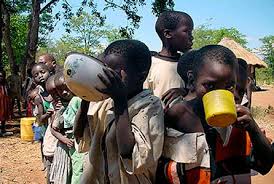
Understanding Cholera
Cholera is a highly infectious disease caused by the ingesting of contaminated food or water with the bacterium Vibrio cholerae. It can lead to severe diarrhoea, dehydration, and even death if left untreated.
AIMS
This newsletter aims to provide you with valuable information and tips to prevent the spread of cholera and maintain a healthy and safe environment.
As of June 11, 2024, 30 states in Nigeria have reported suspected cases of cholera. The 10 most affected states are:
- Bayelsa, Zamfara, Abia, Cross River, Bauchi, Delta, Katsina, Imo, Nasarawa and Lagos
The Lagos State Government declared a cholera outbreak on June 9, 2024, and as of June 12, 2024, there were 324 suspected cholera cases, including 15 deaths.
The outbreak is linked to consuming contaminated water and inadequate sanitation, with a total of 401 suspected cases and 21 fatalities in the state.
Katsina State has not made any specific statements regarding the cholera outbreak. However, the state is one of the 10 states in Nigeria that have reported 90% of the cholera cases, according to the Nigeria Centre for Disease Control and Prevention (NCDC) The NCDC has been providing support to the affected states, including Katsina, to combat the spread of cholera.
- Cholera is an acute diarrheal disease that can be deadly if left untreated, affecting people with inadequate access to safe water and basic sanitation
- The WHO aims to reduce cholera deaths by 90% and eliminate cholera in 20 countries by 2030 through improved surveillance, water and sanitation interventions, community engagement, and vaccination efforts.
- TheGlobal Task Force on Cholera Control (GTFCC) and theCountry Support Platform (CSP) support countries in implementing National Cholera Plans and provide operational assistance, advocacy, and policy guidance.
Causes of cholera
- Ingestion of food or water contaminated with cholera bacteria
- Poor sanitation and hygiene
- Living in crowded areas without proper sanitation
- Conflict, unplanned urbanization, and climate change
Cholera can be spread through
- Lack of access to safe drinking water
- Eating food made with contaminated water
- Eating raw or undercooked seafood
- Eating raw fruits and vegetables
- Close contact with people who have cholera
Symptoms of Cholera
- Acute profuse, painless watery diarrheal (rice water stools) of sudden onset
- Vomiting
- Nausea
- Fever
- Severe cases can lead to death within hours due to dehydration
Prevention is Key
- Ensure access to safe, potable drinking water
- Proper sanitation and waste disposal
- Appropriate hygiene including handwashing
- Avoid raw fruits and vegetables, food from street vendors, and raw or undercooked seafood
Advice to the Public
- Practice good personal hand hygiene
- Ensure that food is well cooked before consumption
- Avoid open defecation and indiscriminate refuse dumping
- If you or anyone you know experience sudden watery diarrheal, visit a healthcare facility immediately
Stay Informed
Stay up-to-date with the latest news and updates on cholera outbreaks and prevention measures.
NB: if we take care of ourselves by observing the water we take and also our surroundings we will not be affected with cholera.
Suite C29 Danziyal Plaza, Off Olusegun Obasanjo Way, CBD, Abuja
Tel: 09-290 3442, +234 805 220 5072. Email: This email address is being protected from spambots. You need JavaScript enabled to view it.
Website: www.savetheconsumers.org
The Nigerian Centre for Disease Control and Prevention (NCDC) has several channels for reporting cases of disease outbreaks and for seeking information.
Here are some of the NCDC helpline:
Email: This email address is being protected from spambots. You need JavaScript enabled to view it.
Phone: +234 0970 000 100
SMS: +234 809 955 5555
WhatsApp: +234 809 955 5555
Twitter: @NCDCgov
Facebook: @NCDCgov
You can also report cases of disease outbreaks or seek information through the NCDCs Surveillance and Response Unit.
Email: This email address is being protected from spambots. You need JavaScript enabled to view it.
Phone: +234 0970 000 100.
Fax: +234 0946 161 555